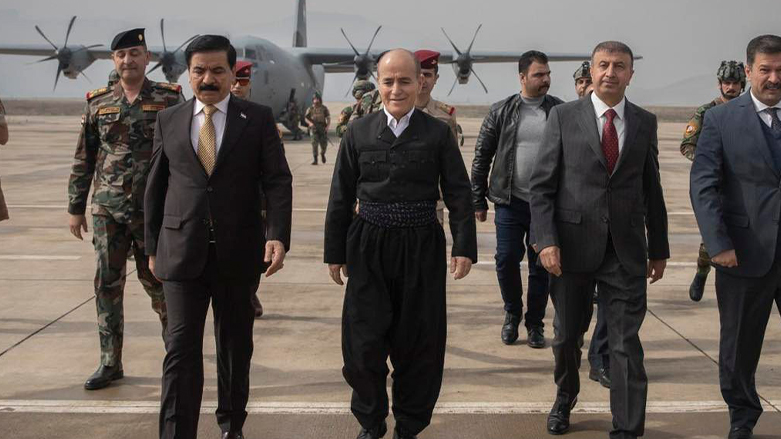Iraqi and Peshmerga defense ministers discuss military academies and joint training

ERBIL (Kurdistan 24) – The Kurdistan Region Peshmerga Minister Shorish Ismail met with his Iraqi government counterpart, Juma Inad, in Sulaimani on Thursday to discuss joint training of forces as well as military academies, according to a statement.
The two ministers discussed a wide range of subjects of interest to both sides, a statement from Ismail’s media office read.
The Kurdistan Region accommodates a number of Iraqi Government military academies.
They highlighted the need for “increasing the scientific level of those military centers” as well as joint Peshmerga and Iraqi army training, the statement read.
Strengthening the cooperation between the two forces was stressed for the sake of the security of Iraq and the Kurdish region, as well as for the wider Middle East.
The Iraqi minister later paid a visit to the 3rd Military College in Qalachwalan in the Sulaimani province to review the state of affairs in the academy.
The remnants of ISIS, which was proclaimed territorially defeated in 2017, still launch attacks against civilian and military targets in the disputed territories between Erbil and Baghdad, mainly due to the lack of coordination between the Kurdish and Iraqi forces.
To fill what the Kurdish officials call a “security vacuum”, a joint brigade of Kurdish and Iraqi forces has been formed. According to Peshmerga commanders, this brigade is currently being trained and will be deployed in those high-risk areas to prevent an ISIS resurgence.
The terror group’s capacity to launch low-level attacks almost five years after its defeat is a continuing source of concern for the Kurdistan Region’s leaders. They have regularly called for increased coordination with their Iraqi and international counterparts to prevent any sort of extremist reemergence.
